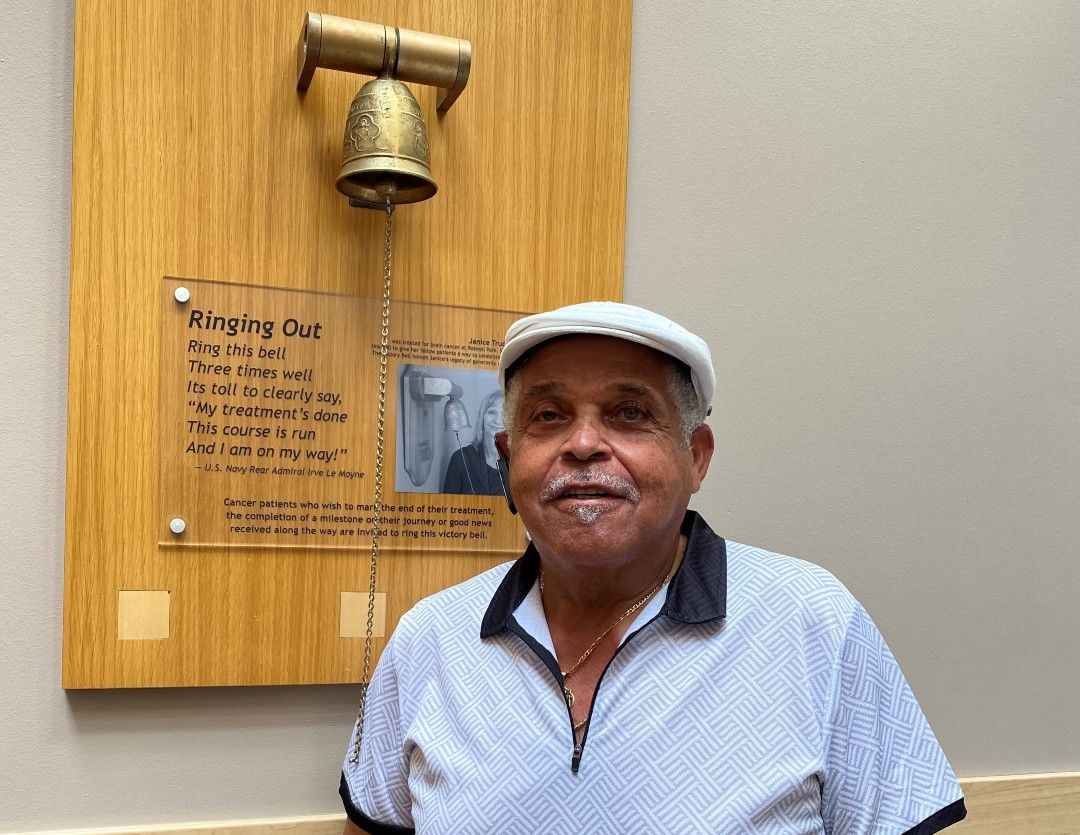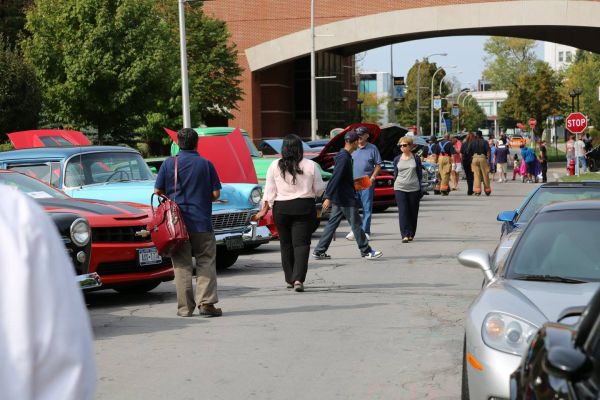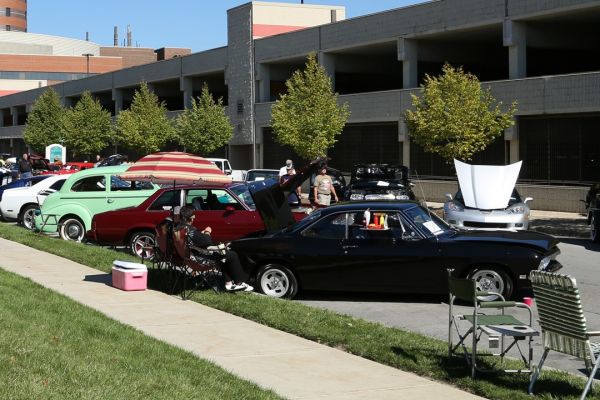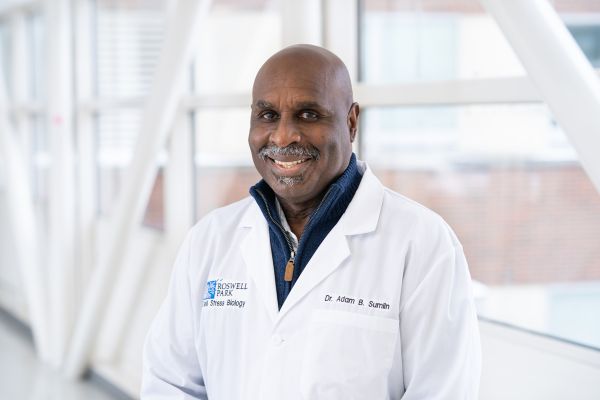For 30 years, Rochester Davis served his community as a member of the Buffalo Fire Department. Prior to that, he served his nation during the Vietnam War. He is a man of valor who understands the great responsibility he has had when it comes to saving lives.
Now he wants to help save others from another experience he has endured: He’s a prostate cancer survivor.
In May 2014, during a routine annual physical, Rochester’s doctor noticed that his prostate was enlarged. After meeting with a urologist and undergoing biopsies and other tests, it was recommended that he go through radiation treatments for his cancer. Instead, Rochester came to Roswell Park Comprehensive Cancer Center for a second opinion and advice.
“Coming to Roswell Park was the greatest decision I made,” he says. He had a prostatectomy with James Mohler, MD, now the Chair Emeritus of the Department of Urology at Roswell Park. A short time later, Rochester’s prostate-specific antigen (PSA), which monitors the levels of a protein that can indicate prostate cancer, remained elevated. He went through 28 radiation treatments and his PSA number returned to normal for a few years before the cancer recurred in 2017. Rochester then was enrolled in a clinical trial, through Gurkamal Chatta, MD, Clinical Chief of Genitourinary Medicine, in which his testosterone levels were lowered. “That went on for a year and my PSA numbers have been down to very low levels. Every six months, when I come in for a check-up, they continue to be very low,” he says.
During the trial, Dr. Chatta led an educational group for others in the trial, providing information on ways the participants could stay healthy and reduce their side effects. “Dr. Chatta provided me with all the information I needed to get through the hormones and keeping my body in a position where the side effects were negligible. He was instrumental in my recovery,” he says.
In addition, Rochester credits his wife, Beverly, for her support during treatment. “She was my rock,” he says. “Every appointment I had, she was right there. She was always telling me, ‘Honey, four ears are better than two.’ Sometimes there are things us men don’t want to hear, especially when it comes to prostate cancer and your ability to do the things you think are normal, including sex.” His wife was also able to understand and relate to some of the changes he went through during his treatment, like hot flashes when he was on hormonal therapy. “She’d toss me a towel and say now I knew what she had gone through with menopause. We were able to laugh about it together.”
A survivor and an advocate for testing
Now Rochester, 72, is “living the life” and talking with other men, every chance he can, about the importance of regular physicals, including early detection prostate cancer tests. He’s a member of Men Allied for the Need to Understand Prostate Cancer (MANUP) Buffalo, Inc., an educational outreach group dedicated to talking with men and their partners about prostate cancer, He stresses that he had no symptoms or indications of his own illness and would not have known about the cancer if not for his yearly physical.
Most men are uncomfortable and resist the idea of getting a digital rectal exam, like the one Rochester’s doctor performed on him in which it was found his prostate was enlarged. They also might not know their family history of cancer, which can increase the risk of developing prostate cancer.
That’s why events like the upcoming 11th Annual Cruisin’ for a Cure are important, he says. “Cruisin’ allows us to get men there to tell them about prostate cancer and to enlighten them to certain facts about it. I want to talk to men and ask, 'do you go to a doctor on a regular basis?' Because that’s the only way you’re going to find out if you have cancer.”
Rochester is also an active member of Us Too, another support group for men with cancer, and has given seminars with the Buffalo Fire Department about the increased risks faced by first responders. “We used to use foam to put out fires and that foam has now been linked with cancer. Other carcinogens that you have in a fire enter your clothing and your lungs. As firefighters, they have to get a physical once a year. We have excellent insurance. All you have to do is go. My other thing is, deal with your (PSA) numbers. They’re so important. Most men don’t realize that if your PSA number doubles from one year to the next, you’re in trouble. We want to express that to men, to take advantage of the situation and be educated.”
He knows that men and their families enjoy the opportunity to look at classic and newer cars, which is why Cruisin’ for a Cure can be an effective way to get men to sign up for prostate cancer early detection testing. “The guys come to look at the cars and we can have conversations with them,” Rochester says. “I’m very open with my diagnosis and being a cancer survivor. There are things I can express to men that they might not hear from other people. The key is knowledge.”
Editor’s Note: Cancer patient outcomes and experiences may vary, even for those with the same type of cancer. An individual patient’s story should not be used as a prediction of how another patient will respond to treatment. Roswell Park is transparent about the survival rates of our patients as compared to national standards, and provides this information, when available, within the cancer type sections of this website.



